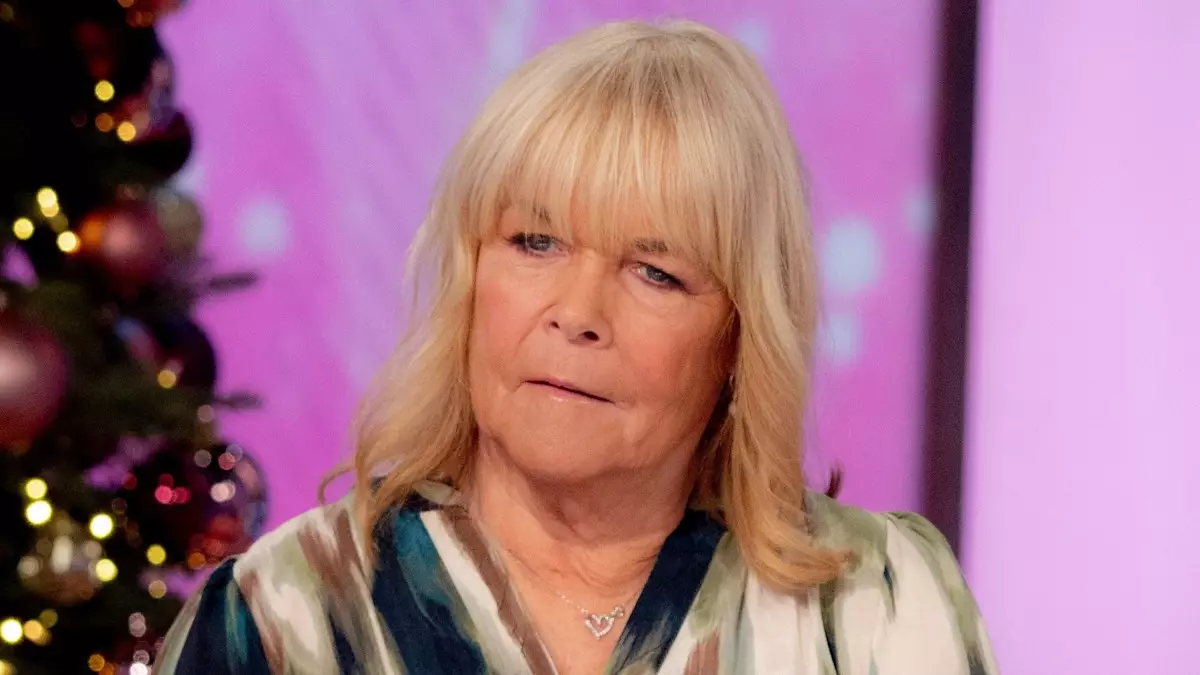In a somber revelation, Linda Robson, renowned for her role in the beloved TV show *Birds of a Feather*, provided an emotional update regarding her longtime friend and co-star, Pauline Quirke. Following Quirke’s private battle with dementia, which was made public last month, Robson’s heartfelt comments illuminate the profound impact of this devastating condition—not only on those directly affected but also on their loved ones. This disclosure sheds light on both the personal struggles involved and the significant support system that remains crucial amidst such hardships.
During an emotional interview with *The Sun*, Robson candidly spoke about the realities of Quirke’s condition. She noted with sadness how dementia had stripped her friend of the ability to recognize loved ones, stating, “She doesn’t know who anybody is.” This heart-wrenching admission emphasizes the often harsh and unrelenting nature of dementia, a disease affecting a staggering one in two individuals today. Robson articulated a sense of helplessness in the face of such loss, proclaiming, “I’d rather get cancer,” because at least cancer offers a semblance of hope for recovery. Her words resonate deeply, revealing the terrifying abyss that dementia represents both for patients and their families.
The emotional burden of witnessing a dear friend decline due to illness is a heavy one. Robson shared how the continued deterioration of Quirke’s memory weighs on her heart, recalling, “It does hit you hard. I think about her all the time.” For those who have forged deep bonds over decades, the gradual loss of recognition is not merely poignant; it reshapes the very foundations of their relationship. Despite the gravity of the situation, Robson remains grateful for the support system surrounding Quirke, mentioning her family as a central pillar during this tumultuous time.
In her attempts to keep the connection alive, Robson mentioned she primarily interacts with Quirke through FaceTime. These digital encounters serve as a bittersweet reminder of the flourishing friendship they once enjoyed, marked by shared laughter and memories. Robson’s attempts to visit Quirke in person reveal a longing for tangible moments together, underlining the innate desire to preserve these fleeting interactions, even when reality casts a shadow over everything.
Quirke’s decision to step back from acting raises further questions about how illnesses like dementia force individuals to make profound changes in their lives. Despite her absence from the screen, the legacy Quirke leaves behind is undeniable. As an accomplished actress and the founder of the Pauline Quirke Academy of Performing Arts, her influence continues to resonate, inspiring future generations of artists. This duality of loss—losing a friend and bearing witness to her legacy—is not an uncommon experience for those in a similar situation.
Robson’s advice to others grappling with the implications of illness among loved ones reflects a compassionate heart: “Just stay strong. Pauline’s got a really good family around her.” This statement highlights the importance of a strong support network, which is crucial in navigating the complexities that accompany dementia. Robson’s relationship with Quirke stands as an exemplification of unwavering friendship, urging society to cultivate understanding and empathy not just for those directly impacted, but also for the families carrying the weight of such burdens.
As the memories of their cherished friendship fade into the realms of a distant past, Robson has expressed a desire not to return to *Birds of a Feather* without her friend, recognizing the profound void Quirke’s absence would create. Instead, she envisions a tribute to celebrate the life and work of Quirke, capturing the essence of the inspiration she provided during her vibrant career. In a world where dementia afflicts so many, stories like this remind us of the importance of legacy, friendship, and the endurance of love—elements that remain vital even in the face of insurmountable challenges.

